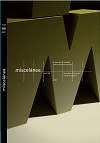Dolor de origen: "The Management of Grief", de Bharati Mukherjee, como narrativa de metadiáspora e inscripción de empoderamiento político
DOI:
https://doi.org/10.26754/ojs_misc/mj.20176785Palabras clave:
literaturas diaspóricas, Bhrati Mukherjee, Air India 182, estudios de la diásporaResumen
Este artículo lleva a cabo una lectura del conocido cuento de Bharati Mukherjee “The Management of Grief”, entendiéndolo como una severa crítica de las políticas multiculturalistas canadienses de principios de los años ochenta. Sin descuidar el importante elemento humano que impulsa a Mukherjee a escribir esta historia, el artículo demuestra cómo, mediante sutiles estrategias de representación, “The Management of Grief” presenta el Canadá de la época como un país donde la estructura de poder dominante revela una estrecha conexión con la cultura blanca, y donde las minorías étnicas son percibidas por la opinión pública como exógenas, y como tal se les hace sentir. Por otra parte, la historia se ofrece como una representación arquetípica del predicamento de las diásporas, que, según Vijay Mishra y otros críticos del área, sería una condición dominada por la melancolía. El cuento de Mukherjee evoca la experiencia diaspórica en otros sentidos, entre los cuales destaca el énfasis en la situación de in-betweenness de estas comunidades en un sentido identitario, afectivo y político. El análisis finalmente muestra el modo en que este cuento enfatiza el proceso de empoderamiento político de las comunidades diaspóricas en Canadá, retratando una paulatina toma de conciencia en que la protagonista se torna agente de su propio destino. Según la lectura que lleva a cabo el artículo, el desenlace se muestra como punto de inflexión de este proceso, a la vez que pone en evidencia el papel cada vez más relevante que juegan las diásporas en el contexto del estado-nación multicultural.
Descargas
Referencias
Alonso-Breto, Isabel. 2012. “‘Enormous Cracks, Towering Mountains’: The Displacement of Migration as Intimate Violence in Sri Lanka- Australia Migration Narratives”. South Asian Review 33 (3): 125-138.
Anderson, Benedict. 1990. Imagined Communities. London: Verso.
Bhabha, Homi. 1994. The Location of Culture. London: Routledge.
Bhabha, Homi. 1995. “Cultural Diversity and Cultural Differences”. In Ashcroft, Bill, Gareth Griffiths and Helen Tiffin (eds.) The Post-Colonial Studies Reader. New York: Routledge: 206-209.
Blaise, Clark and Bharati Mukherjee. 1987. The Sorrow and the Terror: The Haunting Legacy of the Air India Tragedy. New York: Viking.
Bolan, Kim. 2010. “Govt to compensate Air India victims’ families”. Vancouver Sun, (June 17 ) . <http://www.canada.com/news/Gov t + c om p e n s a t e + I n d i a + v i c t i m s +families/3163130/story.html>. Accessed April 29, 2016.
Bowen, Deborah. 1997. “Spaces of Translation: Bharati Mukherjee’s ‘The Management of Grief’”. Ariel: A Review of International English Literature 28 (3): 48-60.
Brah, Avtar. 1996. Cartographies of Diaspora: Contesting Identities. London: Routledge.
Braziel, Jana Evans, and Anita Mannur. 2003. Theorizing Diaspora: A Reader. London: Wiley-Blackwell.
Brubaker, Rogers. 2005. “The ‘Diaspora’ Diaspora”. Ethnic and Racial Studies 28 (1): 1-19.
Cho, Lily. 2007a. “The Turn to Diaspora”. Topia 17: 11-30.
Cho, Lily. 2007b. “Dislocations and Diaspora: Reading Evelyn Lau’s Choose Me”. SCL/ÉCL 32 (1).
Clifford, James. 1994. “Diasporas”. Cultural Anthropology 9 (3): 302-338.
Cohen, Robin. 2008. Global Diasporas: An Introduction. Seattle: University of Washington Press.
Esman, Milton H. 2009. Diasporas in the Contemporary World. Cambridge: Polity.
Hansen, A.B. 2002. “The Punjab 1937-47, a Case of Genocide?” International Journal of Punjab Studies 9 (1): 1-28.
Gunarsson, Sturla. 2008. Air India 182. <http://airindia182.com/index.html>. Accessed April 29, 2016.
Hall, Stuart. 1993. “Cultural Identity and Diaspora”. In Williams, Patrick and Laura Chrisman (eds.) Colonial Discourse &
Postcolonial Theory: A Reader. Harvester Wheatsheaf: 392-403.
Kanaga nayakam, Chelva. 2005. Moveable Margins: The Shifting Spaces of Canadian Literature. Toronto: TSAR.
Khan, Afrinul Haque. 2016. “Text, Representation and Revision: Re-visioning Partition Violence in Khushwant Singh’s Train to Pakistan
and Bhisham Sahni’s Tamas”. Indialogs (3) 81-97.
Lu, Vanessa. 2015. “PM apologizes at Air India memorial”. The Star. (June 23). <http://www.thestar.com/news/canada/2010/06/23/pm_apologizes_at_air_india_memorial.html>. Accessed April 29, 2016.
Major, John. 2010. Report into the 1985 Air India Bombing. <http://publications.gc.ca/collections/collection_2010/bcp-pco/CP32-89-
-2010-eng.pdf>. Accessed April 29, 2016.
Minh-ha, Trinh. 1990. “Not you/Like you: Postcolonial Women and the Interlocking Questions
of Identity and Difference”. In Anzaldúa, Gloria (ed.) Making Face, Making Soul. California: Aunt Lute Press: 371-375.
Mishra, Sudesh. 2006. Diaspora Criticism. Edinburgh: Edinburgh U.P.
Mishra, Vijay. 2007. Literature of the Indian Diaspora: Theorizing the Diasporic Imaginary. New York: Routledge.
Mukherjee, Bharati. (1988) 2004. “The Management of Grief”. In Selvadurai, Shyam (ed.) Story-Wallah! A Celebration of South Asian Fiction. Toronto: Thomas Allen: 91-108.
Philip, Marlene Nourbese. 1989. “Why Multiculturalism Can’t End Racism”. Frontiers: Essays and Writings on Racism and Culture. Stanford, Ont.: The Mercury Press: 181-186.
Ribkoff, Fred. 2012. “Bharati Mukherjee’s ‘The Management of Grief’ and the Politics of Mourning in the Aftermath of the Air India
Bombing”. In Ashcroft, Bill, Ranjini Mendis, Julie McGonegal, and Arun Mukherjee (eds.) Literature for Our Times: Post-colonial Studies in the Twenty-First Century. Amsterdam and New York: Rodopi: 507-522.
Rushdie, Salman. 1991. “Imaginary Homelands”. In Imaginary Homelands: Essays and Criticism 1981-1991. London: Granta: 9-21.
Safran, William. 1991. “Diasporas in Modern Societies: Myths of Homeland and Return”. Diaspora 1 (1): 83-99.
Taylor, Paul Michael and Robert Pontsioen. 2014. Sikhs: Legacy of the Punjab. Washington DC: The Smithsonian Institution.
Tölöyan, Khachig. 1991. “The Nation-State and its Others: In Lieu of a Preface”. Diaspora: A Journal of Transnational Studies 1 (1): 3-7.
Tully, Mark and Satish Jac ob. 2005. Amritsar: Mrs Gandhi’s Last Battle. Delhi: Rupa Books.
Van Dyke, Virginia. 2009. “The Khalistan Movement in Punjab, India, and the Post- Militancy Era: Structural Change and New Political Compulsions”. Asian Survey 49 (6): 975-999.
Descargas
Publicado
Número
Sección
Licencia

Esta obra está bajo una licencia internacional Creative Commons Atribución-NoComercial 4.0.


